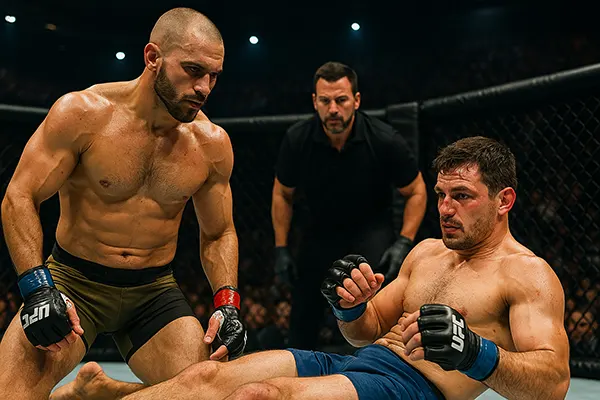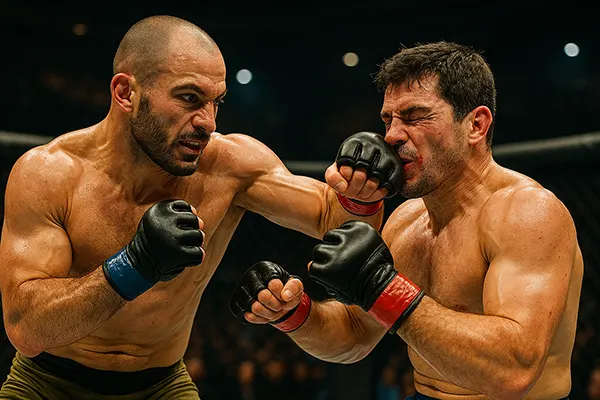Scandals and Betting: What the 2024 UFC Investigation Uncovered About Fixed Fights

The year 2024 marked a pivotal turning point for the Ultimate Fighting Championship (UFC), not just for its high-profile fights but for a sprawling investigation that rocked the foundation of professional mixed martial arts. A series of betting irregularities prompted regulators and investigative bodies across North America and Europe to scrutinise specific UFC events, fighters, and managers. With public confidence shaken, the inquiry revealed a darker underbelly of the sport—one that intertwines combat sports with organised betting rings, insider collusion, and contractual manipulation.
Betting Anomalies That Triggered the Investigation
The first red flags emerged after suspicious betting activity was recorded in November 2023 during a bout between Darrick Minner and Shayilan Nuerdanbieke. Bookmakers, including regulated ones in New Jersey and Ontario, flagged unusually high wagers on Nuerdanbieke winning by first-round stoppage—a result that materialised exactly as predicted. The fight’s outcome prompted the Nevada State Athletic Commission to revoke Minner’s licence, citing non-disclosure of injuries and possible foul play.
This match served as the catalyst for a broader investigation. By February 2024, the FBI had joined forces with several state gaming authorities, following a pattern of similar irregular bets placed minutes before matches began. These wagers often focused on very specific outcomes—early knockouts, quick submissions—that would typically only be known by insiders.
Several sportsbooks, including DraftKings and BetMGM, temporarily suspended betting on select UFC matches, awaiting the results of the inquiry. These actions led to public speculation about just how deep the alleged corruption might run—and whether major figures within the UFC ecosystem were implicated.
Involvement of Coaches and Managers
One of the most damning aspects of the investigation was the role of coaches and managers in the alleged scheme. James Krause, a former UFC fighter and coach, was placed at the centre of the storm. Krause allegedly provided inside information about fighters’ health and performance during his tenure at Glory MMA. He was also linked to operating a private Discord server where betting tips—some involving his own fighters—were shared with paying subscribers.
The UFC responded swiftly, banning Krause from cornering any UFC athletes and warning fighters affiliated with him that they could face suspension or termination. Athletes who maintained ties with Krause risked being barred from UFC events altogether, underscoring the seriousness with which the promotion took the allegations.
Moreover, the probe found financial links between coaches and offshore betting accounts, suggesting a coordinated effort to exploit insider knowledge for profit. These findings prompted regulators in jurisdictions such as Alberta and Ontario to temporarily halt UFC betting until additional safeguards were implemented.
Regulatory and Organisational Responses
In the aftermath of the investigation, the UFC implemented several reforms to address the integrity of its events. First and foremost, the organisation expanded its partnership with the U.S. Integrity Agency—a third-party body tasked with monitoring betting trends and flagging potential fraud. Enhanced disclosure requirements were also imposed on fighters, requiring full transparency regarding injuries and training conditions prior to competition.
State athletic commissions, such as those in Nevada and California, introduced mandatory betting ethics training for athletes and coaches. This was aimed at building awareness of prohibited conduct and reducing the risk of exploitation through ignorance. Additionally, sportsbooks were encouraged to improve algorithms designed to detect anomalies in real time.
At a federal level, lawmakers began discussing the possibility of a nationwide regulatory framework for sports betting, specifically addressing combat sports where insider knowledge plays a disproportionately large role. While no legislation had passed by February 2025, bipartisan support for reforms indicates that legal measures may be imminent.
Impacts on Fighters and Betting Markets
The reputational damage suffered by many athletes was significant, even for those not directly implicated. The blanket scrutiny resulted in a temporary dip in betting volume on UFC fights across several regulated platforms. Some fighters also reported receiving threats online and losing sponsorship deals, despite their clean records.
From a betting perspective, the scandal led to the introduction of restricted betting markets in several states and provinces. Wagering on specific methods of victory—such as “win by submission in round one”—was temporarily removed from sportsbooks in Ontario, New Jersey, and Queensland.
However, the controversy has also sparked innovation. Several betting platforms introduced more stringent risk assessment tools and initiated partnerships with AI-driven fraud detection firms. These systems aim to restore trust while allowing fans to continue engaging with the sport in a legal and transparent manner.

The Future of UFC’s Integrity and Fan Trust
As of early 2025, the UFC faces a critical juncture in rebuilding trust among athletes, fans, and regulators. While the promotion has taken steps toward transparency, the impact of the scandal remains fresh. UFC President Dana White acknowledged the gravity of the situation, stating that “our commitment to clean, competitive sport has never been stronger.”
In response, the UFC introduced a new integrity policy framework, mandating independent compliance audits and real-time communication with sportsbooks on flagged betting trends. Fighters, for their part, are calling for greater union representation to shield their interests and prevent coercion by coaching staff or managers.
Fans remain cautiously optimistic. Polls conducted in February 2025 by ESPN MMA indicated that 64% of UFC viewers believe the organisation is taking the right steps to address the issue. Still, 48% stated that their betting habits had changed due to concerns about fight legitimacy.
What This Means for the Broader Combat Sports World
The ripple effects of the UFC betting scandal have been felt across the entire combat sports industry. Boxing, in particular, has seen renewed calls for unified integrity standards, with promoters now under pressure to implement similar safeguards. Even emerging leagues such as the PFL and ONE Championship have started internal reviews of their matchmaking and medical disclosure processes.
Regulators in Europe, including the UK Gambling Commission, are reportedly working on stricter policies that would apply to all combat sports betting markets, potentially requiring licensed sportsbooks to report detailed logs of all suspicious activity within 24 hours.
Ultimately, the 2024 UFC scandal has underscored the fragility of trust in sports betting and the vital role of transparency in maintaining the legitimacy of professional competition. The industry must now decide whether this was an isolated lapse—or a wake-up call that reforms are long overdue.
Read also
-
 Betting on Fouls: How to Build a Forecast Without Relying...
Betting on Fouls: How to Build a Forecast Without Relying...Fouls betting has become one of the most underestimated yet …
-
 Healthy Gaming Habits in 2026: Balancing Casino Play and ...
Healthy Gaming Habits in 2026: Balancing Casino Play and ...Responsible gambling in 2026 is no longer limited to deposit …
-
 Anti-tilt guide: what to do after a losing streak (withou...
Anti-tilt guide: what to do after a losing streak (withou...A losing streak in sports betting is not automatically a …
-
 Market Liquidity in Live Betting: How It Changes the Fair...
Market Liquidity in Live Betting: How It Changes the Fair...In live (in-play) sports betting, odds can change several times …
